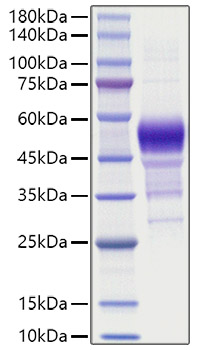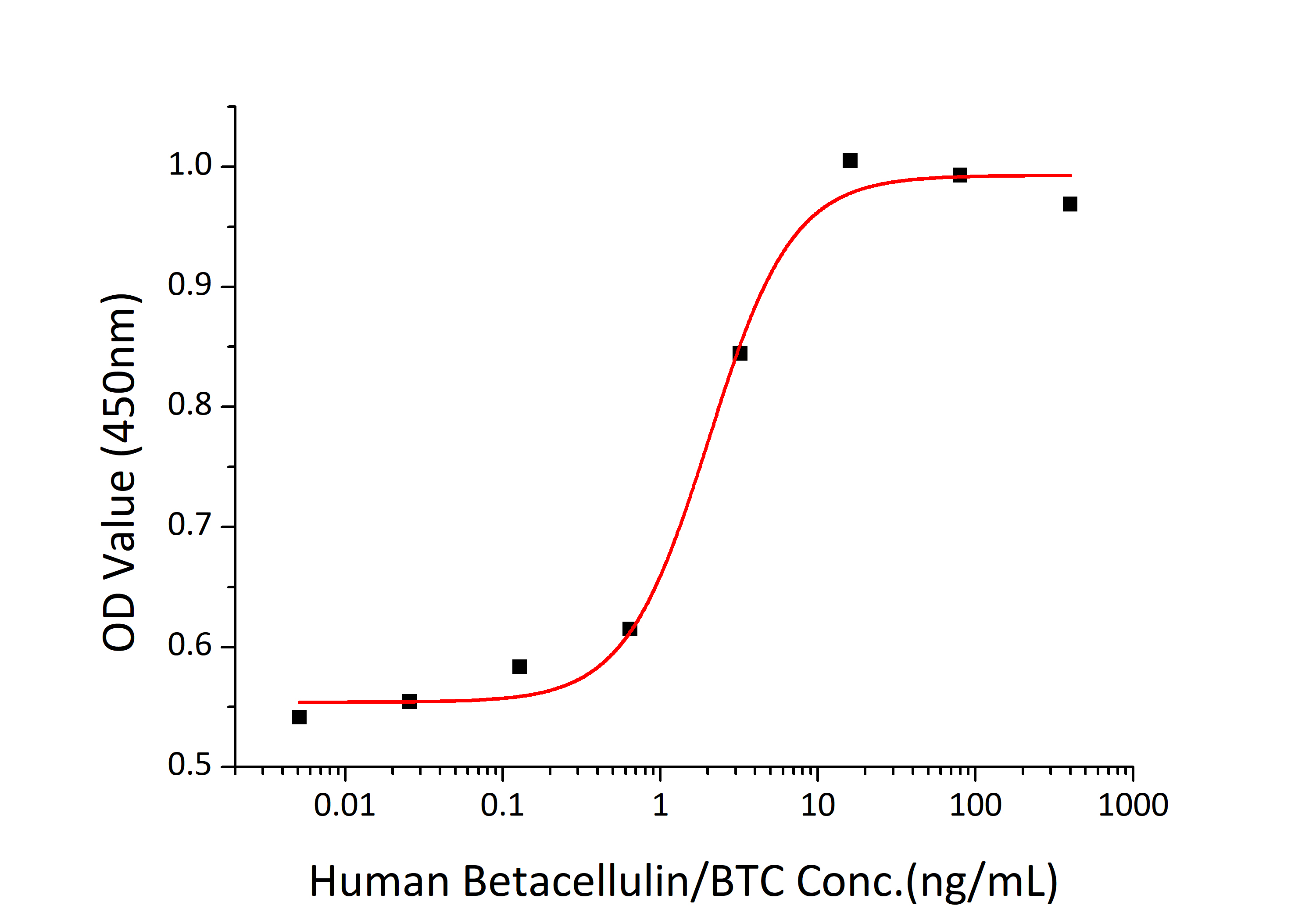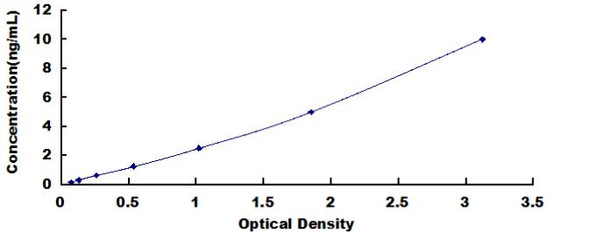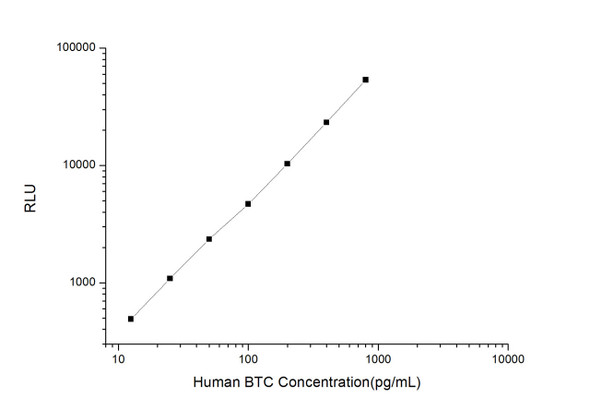Description
Recombinant Human Betacellulin/BTC Protein
The Recombinant Human Betacellulin/BTC Protein is a biologically active recombinant protein that plays a significant role in various cellular processes and signaling pathways in human biology. This protein is widely employed in immunological research, cell biology studies, protein-protein interaction analyses, and therapeutic development, providing researchers with a reliable tool for investigating Betacellulin/BTC function and its implications in health and disease.
This product (SKU: RPCB1723) is produced using HEK293 cells and features a C-hFc tag for convenient detection and purification. The protein exhibits a calculated molecular weight of 34.94 kDa with an observed molecular weight of 45-60 kDa under denaturing conditions, achieving ≥ 90 % as determined by SDS-PAGE.. Functional bioactivity has been validated through rigorous quality control assays, confirming its suitability for demanding research applications.
Key Features
| High Purity by Affinity Chromatography | |
| Mammalian & Bacterial Expression Systems | |
| High lot-to-lot consistency via strict QC |
| Product Name: | Recombinant Human Betacellulin/BTC Protein |
| SKU: | RPCB1723 |
| Size: | 10 μg , 20 μg , 50 μg , 100 μg |
| Reactivity: | Human |
| Synonyms: | BTC, Betacellulin |
| Tag: | C-hFc |
| Expression Host: | HEK293 cells |
| Calculated MW: | 34.94 kDa |
| Observed MW: | 45-60 kDa |
| Gene ID: | 685 |
| Protein Description: | High quality, high purity and low endotoxin recombinant Recombinant Human Betacellulin/BTC Protein (RPCB1723), tested reactivity in HEK293 cells and has been validated in SDS-PAGE.100% guaranteed. |
| Endotoxin: | < 0.1 EU/μg of the protein by LAL method. |
| Purity: | ≥ 90 % as determined by SDS-PAGE. |
| Formulation: | Lyophilized from a 0.22 μm filtered solution of PBS, pH 7.4. |
| Bio-Activity: | Measured in a cell proliferation assay using BALB/3T3 mouse fibroblasts. The ED 50 for this effect is 1.02-4.06 ng/mL, corresponding to a specific activity of 2.46×10 5 ~9.80×10 5 units/mg. |
| Reconstitution: | Centrifuge the vial before opening. Reconstitute to a concentration of 0.1-0.5 mg/mL in sterile distilled water. Avoid vortex or vigorously pipetting the protein. For long term storage, it is recommended to add a carrier protein or stablizer (e.g. 0.1% BSA, 5% HSA, 10% FBS or 5% Trehalose), and aliquot the reconstituted protein solution to minimize free-thaw cycles. |
| Storage: | Store at -20℃.Store the lyophilized protein at -20℃ to -80 ℃ up to 1 year from the date of receipt. After reconstitution, the protein solution is stable at -20℃ for 3 months, at 2-8℃ for up to 1 week. |
Betacellulin(BTC) is a member of the epidermal growth factor (EGF) family. These soluble proteins are ligands for one or more of the four receptor tyrosine kinases encoded by the ErbB gene family (ErbB-1/epidermal growth factor receptor (EGFR), neu/ErbB-2/HER2, ErbB-3/HER3 and ErbB-4/HER4). Betacellulin is a 32-kilodalton glycoprotein that appears to be processed from a larger transmembrane precursor by proteolytic cleavage. This protein is a ligand for the EGF receptor. BTC is a polymer of about 62-111 amino acid residues. Secondary Structure: 6% helical (1 helices; 3 residues)36% beta sheet (5 strands; 18 residues). BTC was originally identified as a growth-promoting factor in mouse pancreatic β-cell carcinoma cell line and has since been identified in humans. It plays a role in the growth and development of the neonate and/or mammary gland function. Betacellulin is a potent mitogen for retinal pigment epithelial cells and vascular smooth muscle cells.








